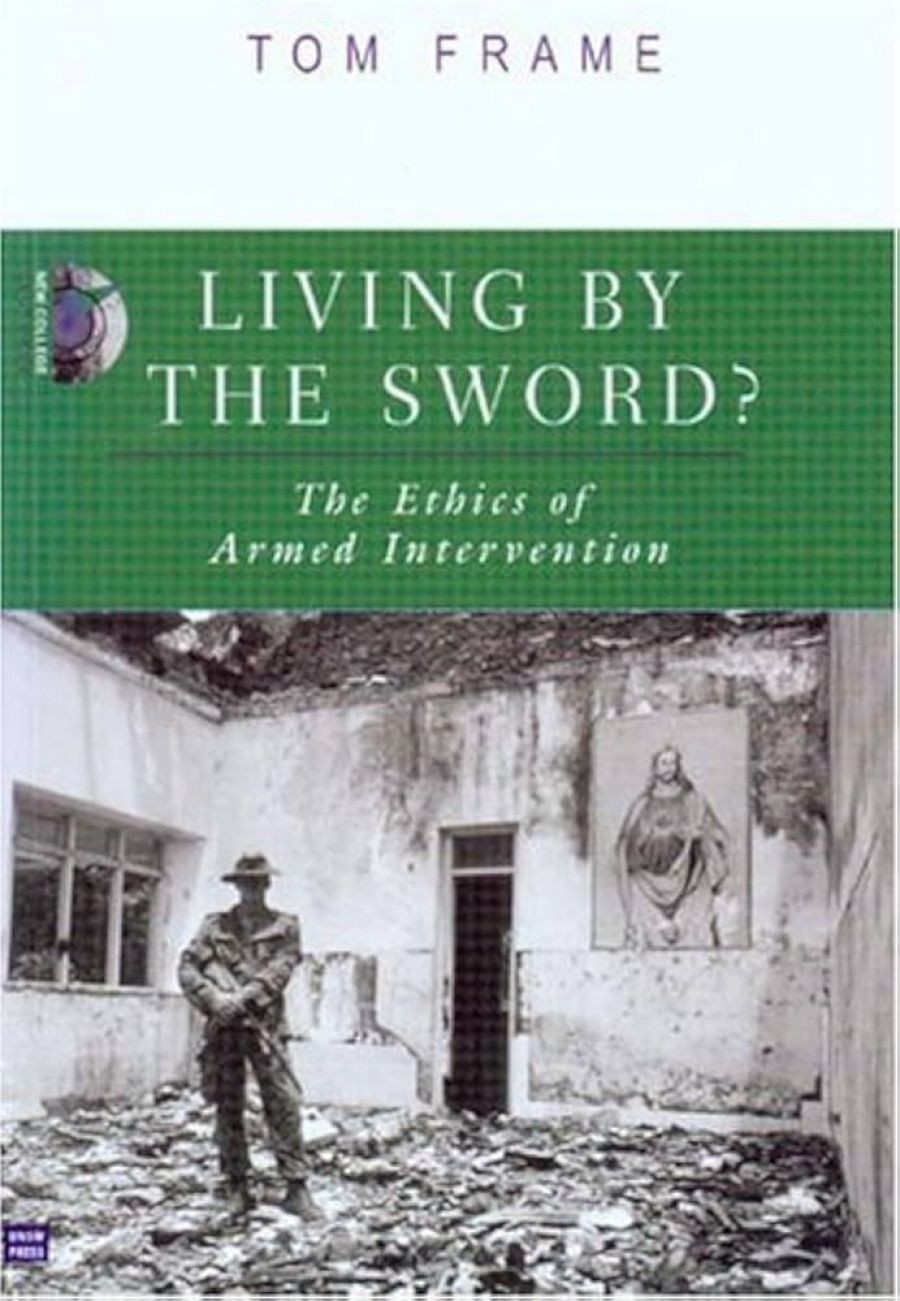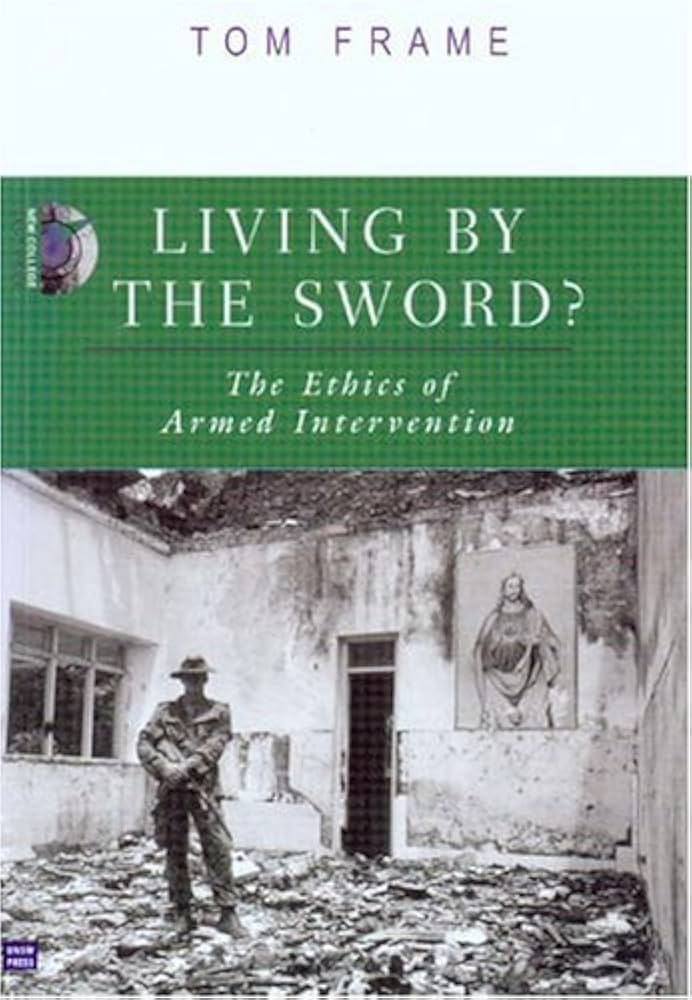
- Free Article: No
- Contents Category: Military History
- Review Article: Yes
- Article Title: Values, Not Interests
- Online Only: No
- Custom Highlight Text:
The end of the Cold War was meant to herald a shift towards a ‘new world order’ of liberal states prepared to use force to prevent political and humanitarian disaster. Morality and self-interest converged: borders were more porous; geopolitical raison d’état no longer reigned; the defence of the oppressed – the improvement of the human condition everywhere – trumped the inviolability of sovereignty. The incantatory phrase ‘humanitarian intervention’ served as the moral fulcrum for those disenchanted by the levelling of economic globalisation and the decay of Communism: a righteous doctrine in a secular world starved of ideology. But the 1990s was a decade of unspeakable slaughter and humanitarian catastrophe, and states capable of stopping the carnage were feckless bystanders, unwilling to translate the nobility of their moral sentiment into the commitment to intervene militarily in defence of a supposed cosmopolitan consciousness. The logic of national interest and universalist morality did not coalesce as neatly as Western policy makers had proclaimed in the Indian summer following Communism’s collapse.
- Book 1 Title: Living by the sword?
- Book 1 Subtitle: The ethics of armed intervention
- Book 1 Biblio: UNSW Press, $34.95 pb, 278 pp
- Book 1 Cover Small (400 x 600):

- Book 1 Cover (800 x 1200):

As Anglican bishop to the Australian Defence Force (ADF), Tom Frame’s wide reflections on the use of force in a world of evil are coloured with a personal hue. In the preface, Frame traces the development of his thinking on war and its justification: from the shock he experienced as a boy witnessing the hostile reception to Australian troops returning from Vietnam, to his current belief in limited war for moral ends. Frame joined the navy at the age of sixteen, left to pursue theological studies and the call to ordination, and became Anglican bishop to the ADF in 2001. Although once an opponent of war under any circumstances, Frame now recoils from pacifism’s eschatology of hope, its stolid tenets shattered by the horrors of Pol Pot’s Cambodia, the Rwandan genocide and Indonesia’s brutality in East Timor. Frame now believes there are a number of circumstances that call for the decisive use of force. The subsequent chapters are a sustained attempt to reconcile military intervention and state power with the tradition of Christian ethics.
Frame skilfully traces the history of ‘just war’ doctrine. from Tertullian’s pacifism to Cicero’s stoic teaching of the applicability of natural law to the affairs of states: St Augustine’s transformation of Ciero’s teaching from a legal perspective to a moral theory of warfare; and the gradual secularisation of the doctrine – the waning of natural law and the rise of positivist international law.
A disturbing feature of this narrative is the way in which the invocation of a just war, ostensibly justified for the protection of innocents, serves to unshackle imperial ambitions, the promise of commerce reinforced by the moral fervour of the enterprise. Cicero’s natural law, notes Frame, ‘was not only a theory of universal applicability, but also one that squared admirably with the practical needs of the Roman empire-builders’. Similarly, the Dutch jurist Hugo Grotius’s assertion of a ‘right to punish’ barbarians, cannibals and other uncivilised inhabitants coincided conveniently with Dutch imperial expansion.
While Frame accepts that states remain the primary actors in international affairs, he acknowledges that sovereignty is now conditional: state autonomy brings with it responsibility for the maintenance of order and the protection of human rights. States that use sovereignty as a shield behind which to plunder the rights of their citizens forfeit the claim to inviolability. But Frame is concerned to harness states’ recourse to force, and he outlines certain criteria that must be satisfied before an intervention is justified. These are familiar tenets of just war doctrine: war must be the last resort; the cause must be just and the objective peace; and the means used must be necessary, proportionate and respectful of the laws of war.
Frame devotes a chapter to exploring the application of these criteria to the wars in Iraq. The Gulf War in 1991 was, he argues, a legitimate response to Saddam Hussein’s invasion of Kuwait. The 2003 war in Iraq, however, was not just: the cause was more expedient than moral; alternatives to force had not been exhausted; and ‘the cost may prove over the next decade to have been out of proportion to the outcome’. Furthermore, international humanitarian law has been systematically violated. As Frame rightly points out, the recasting of a humanitarian and moral objective in light of its outcome is dissembling; and the assertion that the invasion of Iraq was a legitimate humanitarian intervention does not bear scrutiny.
Kosovo is widely proclaimed as the first war fought by the West on moral principle, on behalf of ‘values, not interests’, according to Prime Minister Tony Blair. It was also a war fought without the formal imprimatur of the United Nations. As many have noted, the UN Charter’s norms of non-intervention clash with the evolving body of human rights law that has developed since the Charter’s inception; and the UN has frequently been deadlocked in the face of tragedy, paralysed by power politics and impotent as the vanguard of global moral principle. Alive to the UN’s weaknesses, Frame seeks moral legitimacy in other international institutions.
Even after the disastrous failings of the UN and its member states in Somalia, Rwanda and Bosnia, humanitarian intervention continues to enjoy wide currency as the rhetorical balm of a missionary foreign policy that enjoins national security to the forceful promotion of democracy abroad. In such an atmosphere, proponents of just war must grapple with its historical, moral and legal foundations, and must confront the appropriation of the humanitarian vocabulary by an elite eager to clothe power in virtue. Frame’s book is a wellresearched and thoughtful contribution to this debate.


Comments powered by CComment